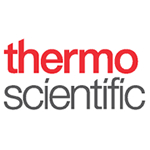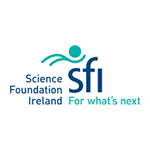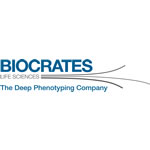Keynote Speakers
Søren Engelsen, University of Copenhagen, Denmark
 Søren Balling Engelsen has a PhD in molecular modeling from The Technical University of Denmark and is professor in biospectroscopy at University of Copenhagen. His primary research topic is development and application of high-throughput quantitative spectroscopic methods (NIR, IR, Raman and NMR) for biological samples in quality control, process analytical chemistry, foodomics, and metabolomics. A key issue in this line of research is the development of multivariate chemometric methods (exploration, regression, and classification) for optimal spectral information extraction. The second research topic is molecular modeling of polysaccharide structures and their interaction with water and affinity to bioactive metabolites and in turn how to exploit these interactions to tailor functionality and health-promoting effects of food. He is author or coauthor of more than 180 published peer reviewed papers, two patents, and numerous book chapters. Søren is most recently awarded the Tomas Hirschfeld Award by the International Council for Near Infrared Spectroscopy (ICNIRS) for longstanding achievement in NIR spectroscopy. (ResearchGate: https://www.researchgate.net/profile/Soren_Engelsen).
Søren Balling Engelsen has a PhD in molecular modeling from The Technical University of Denmark and is professor in biospectroscopy at University of Copenhagen. His primary research topic is development and application of high-throughput quantitative spectroscopic methods (NIR, IR, Raman and NMR) for biological samples in quality control, process analytical chemistry, foodomics, and metabolomics. A key issue in this line of research is the development of multivariate chemometric methods (exploration, regression, and classification) for optimal spectral information extraction. The second research topic is molecular modeling of polysaccharide structures and their interaction with water and affinity to bioactive metabolites and in turn how to exploit these interactions to tailor functionality and health-promoting effects of food. He is author or coauthor of more than 180 published peer reviewed papers, two patents, and numerous book chapters. Søren is most recently awarded the Tomas Hirschfeld Award by the International Council for Near Infrared Spectroscopy (ICNIRS) for longstanding achievement in NIR spectroscopy. (ResearchGate: https://www.researchgate.net/profile/Soren_Engelsen).
Michael A. Schmidt, Advanced Pattern Analysis & Countermeasures Group, US
 Dr. Michael A. Schmidt is the President of Sovaris Aerospace and co-chair of the Advanced Pattern Analysis & Countermeasures Group. He is also Course Director of the Clinical Genomics, Proteomics, and Metabolomics Program, at George Washington University School of Medicine and Health Sciences. Dr. Schmidt is among the leaders advancing the use of integrated Omics and personalized medicine methodologies for application in human space flight. His work also includes complex molecular profiling and countermeasure development for elite athletes across a wide range of professional and Olympic sports, including some of America’s most successful teams.
Dr. Michael A. Schmidt is the President of Sovaris Aerospace and co-chair of the Advanced Pattern Analysis & Countermeasures Group. He is also Course Director of the Clinical Genomics, Proteomics, and Metabolomics Program, at George Washington University School of Medicine and Health Sciences. Dr. Schmidt is among the leaders advancing the use of integrated Omics and personalized medicine methodologies for application in human space flight. His work also includes complex molecular profiling and countermeasure development for elite athletes across a wide range of professional and Olympic sports, including some of America’s most successful teams.
Dr. Schmidt did his Ph.D. research in molecular medicine and biochemistry within the Life Sciences Division at NASA Ames Research Center, under NASA Ames Chief Medical Officer Ralph Pelligra, M.D. Dr. Schmidt also did a fellowship at NASA’s Human Systems Integration Division, with an emphasis on physiologic monitoring and countermeasures aimed at raising human performance in extended microgravity, artificial gravity, sleep deprivation, night vision operations, pararescue, high altitude flight, and other stressors encountered in extreme environments. He has done additional studies at Lancaster University (neuroscience) and the Massachusetts Institute of Technology (data and models).
Dr. Schmidt is co-author of “Personalized Medicine in Human Space Flight” (Metabolomics 2013) and “Incorporation of Omics Analyses into Artificial Gravity Research for Space Exploration Countermeasure Development” (Metabolomics 2016).
Karsten Hiller, University of Luxemburg, Luxemburg
 Prof Karsten Hiller is head of the Metabolomics Group and a FNR-ATTRACT Fellow at the Luxembourg Centre for Systems Biomedicine (LCSB). He studied Biology and Computer Science at the University of Braunschweig, Germany where he also obtained his PhD in Bioinformatics and Microbiology in 2006. In 2008 he joined the Department of Chemical Engineering at the Massachusetts Institute of Technology where he performed research in stable-isotope assisted metabolomics and cancer metabolism. Since 2010 he is the Head of the Metabolomics Group at the LCSB and was holder of the FNR-ATTRACT grant from the Fonds National de la Recherche (Luxembourg). In 2016 he was appointed as an Associate Professor for Cellular Metabolism at the University of Luxembourg. The research interest of his group covers metabolic aspects of (neuro-)inflammation and neurodegeneration. For this purpose, his team develops and applies technology at the interface of mass spectrometry, experimental and computational biology to profile cellular metabolism.
Prof Karsten Hiller is head of the Metabolomics Group and a FNR-ATTRACT Fellow at the Luxembourg Centre for Systems Biomedicine (LCSB). He studied Biology and Computer Science at the University of Braunschweig, Germany where he also obtained his PhD in Bioinformatics and Microbiology in 2006. In 2008 he joined the Department of Chemical Engineering at the Massachusetts Institute of Technology where he performed research in stable-isotope assisted metabolomics and cancer metabolism. Since 2010 he is the Head of the Metabolomics Group at the LCSB and was holder of the FNR-ATTRACT grant from the Fonds National de la Recherche (Luxembourg). In 2016 he was appointed as an Associate Professor for Cellular Metabolism at the University of Luxembourg. The research interest of his group covers metabolic aspects of (neuro-)inflammation and neurodegeneration. For this purpose, his team develops and applies technology at the interface of mass spectrometry, experimental and computational biology to profile cellular metabolism.
Tulllia Hyötyläinen, Steno Diabetes Centre, Denmark
Dr. Tuulia Hyötyläinen obtained a MSc degree in Chemistry at The University of Helsinki in Finland followed by a PhD in Analytical Chemistry. Dr. Hyötyläinen has a broad background in separation science, particularly in hyphenated and multidimensional chromatographic methods combined with mass spectrometric techniques. Her main research interests are development of novel methodologies for metabolomics and clinical diagnostics. Last seven years her main emphasis has been in the development of methods for metabolomic analyses, both for non-targeted profiling methods in discovery, as well as for targeted analysis of specific key metabolites. In nontargeted profiling methods, the goal has been to develop methods with high coverage of metabolites. One of the main goals has been the development of robust workflows from sampling, sample preparation, analysis to data preprocessing and data mining, and quality control of the each step of the workflow. Development of methodologies for the identification of unknown metabolites has also been one of the main aspects of the research.
Melissa Fitzgerald, The University of Queensland, Australia
 Melissa has held the Australian Food and Grocery Chair at the University of Queensland since 2012. Before that she was the head of rice quality, nutrition and value adding at the International Rice Research Institute. She was introduced to Metabolomics through collaboration on a project on metabolomics of rice, melons and broccoli, and was so impressed with the techniques, that she has embraced metabolomics to progress our understanding of the sensory experience of eating rice and other foods, by combining it with genomics and sensory profiling. Her over-arching aims are to provide selection tools to breeding programs for the traits of sensory quality of food.
Melissa has held the Australian Food and Grocery Chair at the University of Queensland since 2012. Before that she was the head of rice quality, nutrition and value adding at the International Rice Research Institute. She was introduced to Metabolomics through collaboration on a project on metabolomics of rice, melons and broccoli, and was so impressed with the techniques, that she has embraced metabolomics to progress our understanding of the sensory experience of eating rice and other foods, by combining it with genomics and sensory profiling. Her over-arching aims are to provide selection tools to breeding programs for the traits of sensory quality of food.
Krista A. Zanetti, National Cancer Institute, US
 Krista Zanetti is a Program Officer in the Epidemiology and Genomics Research Program (EGRP), Division of Cancer Control and Population Sciences at the National Cancer Institute (NCI), National Institutes of Health (NIH). Dr. Zanetti earned her Ph.D. in Nutrition from Cornell University in 2003 and joined the Cancer Prevention Fellowship Program at the NCI. During the first year of her fellowship, she earned an M.P.H. at the Johns Hopkins Bloomberg School of Public Health. Dr. Zanetti then conducted primary research in the Laboratory of Human Carcinogenesis in the NCI’s Center for Cancer Research from 2004 to 2010. Since joining EGRP in 2010, Dr. Zanetti’s primary focus has been building infrastructure and capacity to support metabolomics in population-based studies. Most recently, she spearheaded collaborative efforts to establish the trans-NIH international COnsortium of METabolomics Studies (COMETS), which brings together 25 prospective cohorts and two consortia from the U.S., Europe, Asia and South America (http://epi.grants.cancer.gov/comets). COMETS allows investigators from across multiple disease phenotypes to: 1.) leverage existing resources and data; and 2.) work collectively to develop methods, tools and protocols for data harmonization and sharing, quality control and data standardization.
Krista Zanetti is a Program Officer in the Epidemiology and Genomics Research Program (EGRP), Division of Cancer Control and Population Sciences at the National Cancer Institute (NCI), National Institutes of Health (NIH). Dr. Zanetti earned her Ph.D. in Nutrition from Cornell University in 2003 and joined the Cancer Prevention Fellowship Program at the NCI. During the first year of her fellowship, she earned an M.P.H. at the Johns Hopkins Bloomberg School of Public Health. Dr. Zanetti then conducted primary research in the Laboratory of Human Carcinogenesis in the NCI’s Center for Cancer Research from 2004 to 2010. Since joining EGRP in 2010, Dr. Zanetti’s primary focus has been building infrastructure and capacity to support metabolomics in population-based studies. Most recently, she spearheaded collaborative efforts to establish the trans-NIH international COnsortium of METabolomics Studies (COMETS), which brings together 25 prospective cohorts and two consortia from the U.S., Europe, Asia and South America (http://epi.grants.cancer.gov/comets). COMETS allows investigators from across multiple disease phenotypes to: 1.) leverage existing resources and data; and 2.) work collectively to develop methods, tools and protocols for data harmonization and sharing, quality control and data standardization.
Session Keynotes
Rafael Brüschweiler, Ohio State University, US
 Rafael Brüschweiler received his Bachelor’s and Master’s degrees in Physics from ETH, Zürich, Switzerland, and his Ph.D. in Chemistry from the Laboratorium für Physikalische Chemie at ETH under the supervision of Prof. Richard R. Ernst. He was then a postdoctoral fellow at the Department of Molecular Biology at the Scripps Research Institute, La Jolla, California. After obtaining tenure as the Carlson Chair of Chemistry & Biochemistry at Clark University, Worcester, Massachusetts, he became the George Matthew Edgar Professor of Chemistry and Biochemistry at Florida State University and the Associate Director of Biophysics at the National High Magnetic Field Laboratory in Tallahassee, Florida. In 2013 he moved to the Ohio State University as an Ohio Research Scholar to build and lead the new CCIC NMR center (http://www.ccic.ohio-state.edu/NMR). His interest in metabolomics started in 2004 while developing Covariance NMR. His laboratory’s metabolomics research currently focuses on the development of novel methods for the deconvolution and analysis of 2D NMR spectra of metabolomics mixtures, such as TOCSY, HSQC, and HSQC-TOCSY, the establishment of customized databases and the COLMAR suite of web servers to efficiently analyze and query such spectra (http://spin.ccic.ohio-state.edu/), the exploration of hybrid NMR/MS methods, and the screening of additives, including nanoparticles, for the simplified and improved analysis of NMR spectra. In collaboration with biomedical researchers, these methods are being applied in the context of a variety of metabolomics studies. Besides metabolomics, Rafael Brüschweiler has an active research program in protein dynamics and function by NMR and high-performance computer simulations.
Rafael Brüschweiler received his Bachelor’s and Master’s degrees in Physics from ETH, Zürich, Switzerland, and his Ph.D. in Chemistry from the Laboratorium für Physikalische Chemie at ETH under the supervision of Prof. Richard R. Ernst. He was then a postdoctoral fellow at the Department of Molecular Biology at the Scripps Research Institute, La Jolla, California. After obtaining tenure as the Carlson Chair of Chemistry & Biochemistry at Clark University, Worcester, Massachusetts, he became the George Matthew Edgar Professor of Chemistry and Biochemistry at Florida State University and the Associate Director of Biophysics at the National High Magnetic Field Laboratory in Tallahassee, Florida. In 2013 he moved to the Ohio State University as an Ohio Research Scholar to build and lead the new CCIC NMR center (http://www.ccic.ohio-state.edu/NMR). His interest in metabolomics started in 2004 while developing Covariance NMR. His laboratory’s metabolomics research currently focuses on the development of novel methods for the deconvolution and analysis of 2D NMR spectra of metabolomics mixtures, such as TOCSY, HSQC, and HSQC-TOCSY, the establishment of customized databases and the COLMAR suite of web servers to efficiently analyze and query such spectra (http://spin.ccic.ohio-state.edu/), the exploration of hybrid NMR/MS methods, and the screening of additives, including nanoparticles, for the simplified and improved analysis of NMR spectra. In collaboration with biomedical researchers, these methods are being applied in the context of a variety of metabolomics studies. Besides metabolomics, Rafael Brüschweiler has an active research program in protein dynamics and function by NMR and high-performance computer simulations.
Nicola Zamboni, ETH Zurich, Switzerland
 Nicola Zamboni graduated in the group of Jay Bailey at the Institute of Biotechnology of ETH Zurich in the field of metabolic engineering and 13C metabolic flux analysis. As a PostDoc in Stanford, he developed and applied metabolomics-based approaches for unraveling metabolic changes in eukaryotic cells. Since 2005, he’s an independent PI at the Institute of Molecular Systems Biology in Zurich. His lab focuses on the development of mass spectrometry and computational methods to characterize metabolic dynamics in complex systems and reverse engineer cellular regulation.
Nicola Zamboni graduated in the group of Jay Bailey at the Institute of Biotechnology of ETH Zurich in the field of metabolic engineering and 13C metabolic flux analysis. As a PostDoc in Stanford, he developed and applied metabolomics-based approaches for unraveling metabolic changes in eukaryotic cells. Since 2005, he’s an independent PI at the Institute of Molecular Systems Biology in Zurich. His lab focuses on the development of mass spectrometry and computational methods to characterize metabolic dynamics in complex systems and reverse engineer cellular regulation.
Toshihiro Obata, Max Planck Institute, Potsdam
 Toshihiro Obata is a postdoc in the Central Metabolism Group (directed by Alisdair Fernie) at the Max-Planck-Institute of Molecular Plant Physiology. He employs GC-MS based metabolite profiling and metabolic flux analysis for investigating the diversity and environmental responses of primary metabolism in plants and microalgae. He is also interested in the molecular mechanism of metabolic flux regulation with special focus on the plant mitochondrial metabolism.
Toshihiro Obata is a postdoc in the Central Metabolism Group (directed by Alisdair Fernie) at the Max-Planck-Institute of Molecular Plant Physiology. He employs GC-MS based metabolite profiling and metabolic flux analysis for investigating the diversity and environmental responses of primary metabolism in plants and microalgae. He is also interested in the molecular mechanism of metabolic flux regulation with special focus on the plant mitochondrial metabolism.
Matt DeJongh, Hope College, US
 Matthew DeJongh received his Ph.D. in Computer Science from The Ohio State University in 1991. He entered the field of Bioinformatics in 1998 as a Software Engineer for NetGenics, Inc., subsequently LION bioscience Inc. In 2002 he moved to Hope College in Holland, Michigan, USA, where he is currently Professor of Computer Science, and conducts research in bioinformatics with undergraduate students. His research interests lie in the creation of software to automate the reconstruction of metabolic and regulatory models of bacteria based on their genome sequences, and the application of these models to the analysis of phenotypic data. Since 2005 he has participated in the SEED genome annotation project, development of the RAST annotation service, the ModelSEED project for automated reconstruction of metabolic models, and the United States Department of Energy’s Systems Biology Knowledgebase (KBase) project. In 2016 he is a visiting researcher in the Thiele lab at the Luxembourg Centre for Systems Biomedicine through a Fulbright Research Scholar grant.
Matthew DeJongh received his Ph.D. in Computer Science from The Ohio State University in 1991. He entered the field of Bioinformatics in 1998 as a Software Engineer for NetGenics, Inc., subsequently LION bioscience Inc. In 2002 he moved to Hope College in Holland, Michigan, USA, where he is currently Professor of Computer Science, and conducts research in bioinformatics with undergraduate students. His research interests lie in the creation of software to automate the reconstruction of metabolic and regulatory models of bacteria based on their genome sequences, and the application of these models to the analysis of phenotypic data. Since 2005 he has participated in the SEED genome annotation project, development of the RAST annotation service, the ModelSEED project for automated reconstruction of metabolic models, and the United States Department of Energy’s Systems Biology Knowledgebase (KBase) project. In 2016 he is a visiting researcher in the Thiele lab at the Luxembourg Centre for Systems Biomedicine through a Fulbright Research Scholar grant.
Luis Valledor, University of Oviedo, Spain
Luis Valledor obtained his Ph.D in the field of Plant Biology from the University of Oviedo in 2009, obtaining a deep background in plant proteomics. Dr. Valledor was then awarded with a Marie Curie-IEF grant to join Prof. Weckwerth’s lab at the University of Vienna where he developed new proteomic and metabolomic-based approaches for studying abiotic stress responses in microalgae and pines. After working several years in the Academy of Sciences of the Czech Republic he returned to the University of Oviedo where he is a PI. His main research interest is based on the study of the adaptive process to temperature and UV stresses in conifers. To this purpose, novel workflows and analytical methods have been developed aiming to integrate environment, natural variation, ecophysiology, and omics. The goal of these studies is the employ “population” proteomics and metabolomics to deepen in our knowledge of stress biology as a basis for providing novel tools for plant selection and forest management. Understanding how microalgae respond to abiotic stresses, and particularly its signalling mediated by SnRK family, is also an important aspect of the research at his lab.
Antonio Granell Richart, Polytechnic University of Valencia, Spain
 Research Professor of the Spanish National Research Council (CSIC), leads the Plant Genomics and Biotechnology Group at the Plant Molecular and Cellular Research Institute in Valencia, Spain after working for several years in USA and Canada - Plant Science Institute in Philadelphia (PA, USA), Queens University (Kingston, ON, Canada). His research activities during the last few years have been directed to understand the molecular genetics of fruit quality traits, their variability and improvement, with an emphasis in those traits resulting from the levels of primary and secondary metabolites. Results have been published in over 120 papers in ISI journals, 40 book chapters and about 12 patent, several genomic and biotech databases, and to the generation of tools and plant materials for the scientific community. His main interest now is directed to the characterization, valorization and increase resilience of traditional tomato varieties, increase tomato tolerance to high temperatures and to develop tools and study case in the plant biotec field (http://www.ibmcp.upv.es/FGB/).
Research Professor of the Spanish National Research Council (CSIC), leads the Plant Genomics and Biotechnology Group at the Plant Molecular and Cellular Research Institute in Valencia, Spain after working for several years in USA and Canada - Plant Science Institute in Philadelphia (PA, USA), Queens University (Kingston, ON, Canada). His research activities during the last few years have been directed to understand the molecular genetics of fruit quality traits, their variability and improvement, with an emphasis in those traits resulting from the levels of primary and secondary metabolites. Results have been published in over 120 papers in ISI journals, 40 book chapters and about 12 patent, several genomic and biotech databases, and to the generation of tools and plant materials for the scientific community. His main interest now is directed to the characterization, valorization and increase resilience of traditional tomato varieties, increase tomato tolerance to high temperatures and to develop tools and study case in the plant biotec field (http://www.ibmcp.upv.es/FGB/).
















